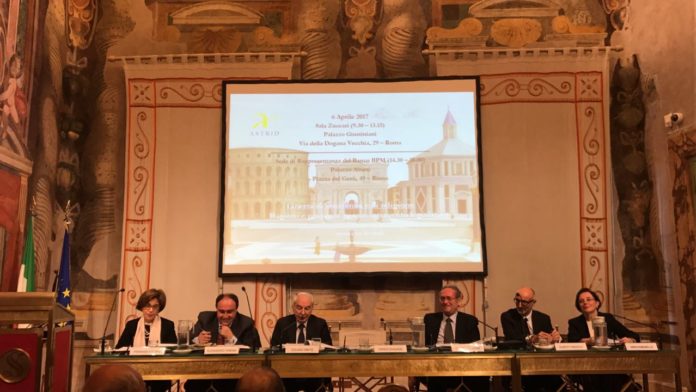Rome (NEV), April 21, 2017 – On April 6 at the Italian Senate, a group of experts related to the ASTRID Foundation* presented its draft for a new bill on “Freedom of conscience and religion”. Among the jurists who presented the draft during this special event, the constitutionalist Roberto Zaccaria, introduced the discussion saying that: “it is not important that the proposal is accepted in its integrity; what really matters is that this work – which went on for two years and which today we present as a structured and complete text – may be accepted as a valid starting point for the future legislative work and presented to the Parliament for examination in the next legislature”.
After the greetings of Pietro Grasso, the Senate president, the works went on with the analysis of the contents and the technical aspects of the bill.
In the afternoon the debate continued at Palazzo Altieri with a round table to which participated the Minister of Interior, Marco Minniti, and the Minister for the Relations with Parliament, Anna Finocchiaro.
Both, Ilaria Valenzi, in charge of the legal office of the Commission of the evangelical churches for the relations with the State (CCERS), and Tiziano Rinoldi, dean of the Adventist theological Faculty, expressed great interest for the high level of the text discussion. They also underlined
that during the elaboration process of the bill, all the faith communities represented by CCERS, were invited to the works and were able to give their contributions.
In his closing remarks pastor Eugenio Bernardini, moderator of the Waldensian Board, underlined the forerunner role of the Waldensian church on this matter, recalling that it was the first minority confession in Italy to sign an agreement with the State in 1984. He also stressed, among other issues, the importance of a law “to guarantee freedom of religion and believe for all, but also the freedom not to believe”.
(*) The Astrid Foundation (Foundation for the Analysis, Studies and Research of the Reformation of the Democratic Institutions and for the Innovation in the Public Administrations) was founded in 2001. It brings together more than three hundred academicians, researchers and experts specialized in the analysis and the design of public policies, institutional and administrative reformations, the regulation of economics and the challenges of the European Union.





























